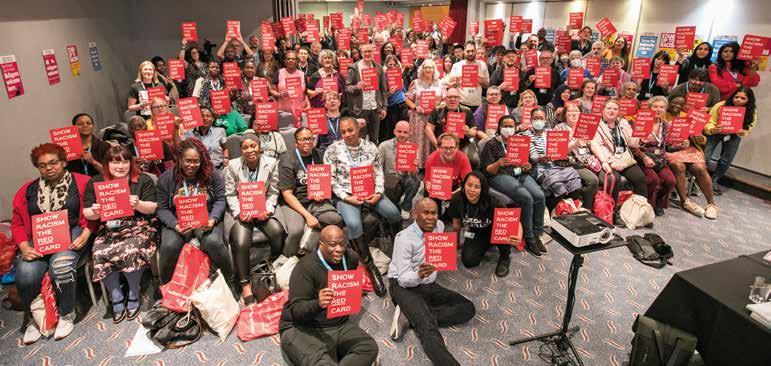Feature Interview Annie Morgan, a social sciences teacher, tells Educate about how she is tackling sexism in her school. I BEGAN teaching in the North East in 2019. It was evident from the outset that sexism was present in school, as it is in many institutions. I noticed that male students were treating me differently from my male counterparts. This was also the experience of other female colleagues. We felt unable to manage some male students’ behaviour and gain their respect. It made me consider what policies the school had in place for dealing with sexism and lower-level micro-aggressions. We had policies to deal with bullying, but not specifically related to sexual harassment and everyday sexism. As a result, I asked to set up a research action group (RAG) consisting of 12 teachers, from a range of subjects and specialisms, who felt inspired to create change in this area. The key aims of this action group were to identify: n issues regarding sexist language and behaviour between pupils n how to ensure a teacher’s response is consistent and that teachers are aware of what to do/say when an incident occurs n what opportunities exist, in the curriculum, to tackle sexist language and behaviour n how a whole-school approach could tackle sexist language and behaviour through policy developments and changes.
29%
said they have been treated differently because of their sex
32
The Feminist Society meets weekly at the secondary school where Annie Morgan teaches, to discuss a range of issues presented by
Sexism: it’s still We designed a questionnaire to gather data about the experiences of sexism in years 9 to 13 and had responses from 186 students. Our findings (see below) coincide with those in the NEU and UK Feminista report, It’s just everywhere (neu.org.uk/advice/its-justeverywhere-sexism-schools). In addition to the RAG, I had other regular meetings with members of the senior leadership team to discuss the importance of student voice, and set about running three
44%
experienced insulting or hurtful language based on sex
educate Your magazine from the National Education Union (NEU)
focus groups with year 13 students to talk about sexism in school. We wanted about 14 young people in each group, and ran the initial session with male and female students to explain what our plan of action was. We then split the sessions into students who identified as female and those who identified as male. In these sessions, students talked about the issues they faced at school and identified: n the need to educate teachers about student experiences of sexism
Experience of sexism in school: years 9 to 13
30%
experienced unwanted physical contact of a sexual nature
47%
experienced unwanted attention of a sexual nature
61%
wanted more opportunities to discuss sexism in school













